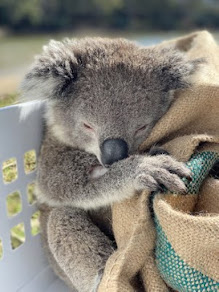 |
| Credit: Tara Gatehouse |
One of UQ’s leading COVID-19 vaccine researchers, Associate Professor Keith Chappell, has discovered that the chlamydia epidemic plaguing endangered koala populations in Queensland and NSW is linked to a common virus that likely suppresses koalas’ immune systems.
Dr Chappell and Dr Michaela Blyton, from UQ’s Australian Institute for Bioengineering and Nanotechnology and School of Chemistry and Molecular Biosciences, made this discovery after studying more than 150 koalas admitted to Currumbin Wildlife Hospital.
Dr Chappell said this study could have far reaching impacts and lead to better protective measures like breeding programs and new anti-viral medications.
“We know Queensland and NSW koala populations are heavily impacted by chlamydia infections and a retrovirus, but until now a clear link between the two has not been conclusively established,” Professor Chappell said.
“Our research has found that the amount of retrovirus circulating within an animal’s blood was strongly associated with chlamydia and symptoms like cystitis and conjunctivitis, as well as overall poor health.
“It’s a double whammy for already-endangered koalas.”






.jpg)

